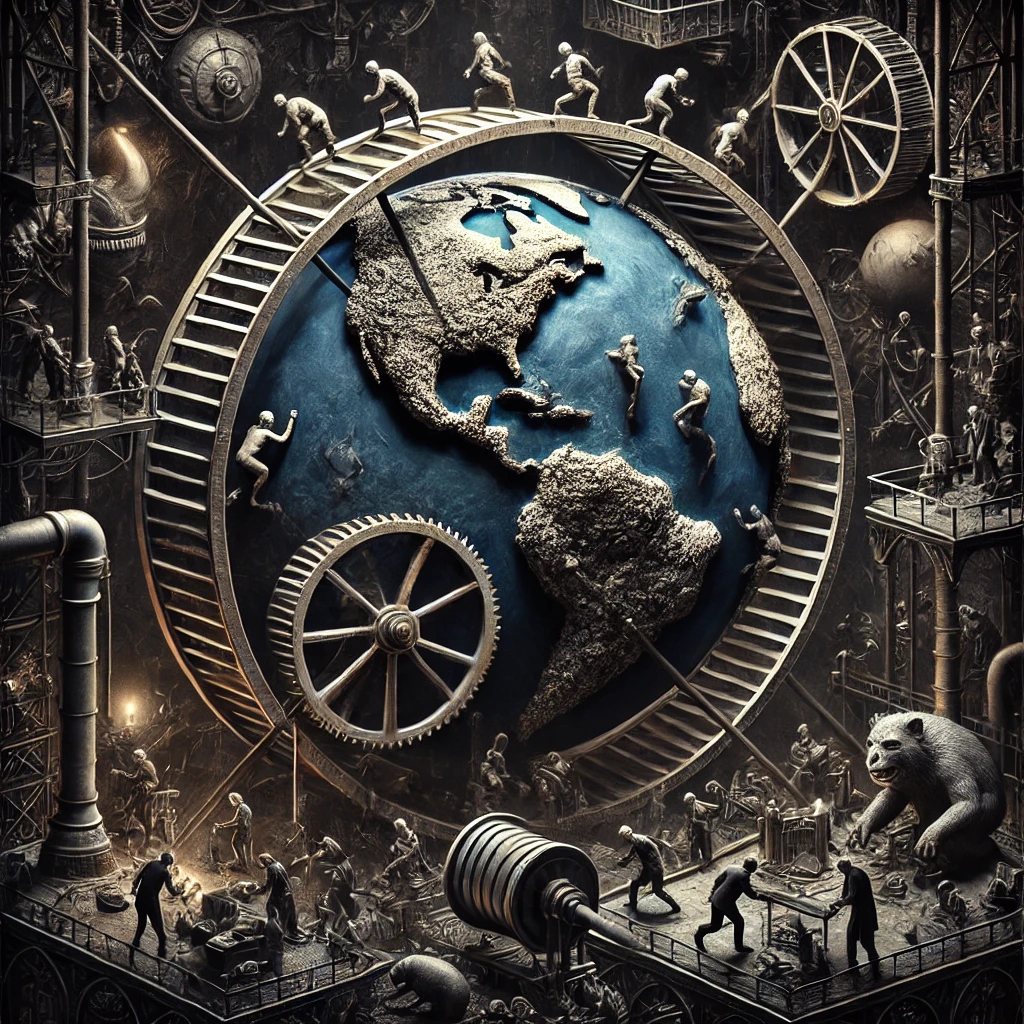One Belief To Bind them All, One Belief to Rule Them All
GDP’s Unquestioned Authority
Humans are riddled with ideas, beliefs, philosophies and throughout history, we have debated, argued, and even gone to war over these different systems of thoughts. Conflicts often arise on differing perceptions of truth and morality. Yet, amid all these ideological battles, there is one belief that transcends even religion and reigns supreme in today’s modern world that isn’t spoken about enough—GDP, or Gross Domestic Product. This economic measure has quietly ascended to a position of unparalleled influence, shaping the policies of nations and the lives of billions, while rarely being questioned or scrutinized.
Quietly in the background, GDP fuels the engines of economies, drives political decisions, divides nations, sets agendas for international trade agreements and influences the daily lives of people around the globe. This omnipresent metric, essentially reduces humanity to a function of productivity and economic output. This singular focus on economic production has profound implications for how we view ourselves and our place in the world. It dictates national priorities and shapes international relations, often at the expense of other values such as well-being, sustainability, and social equity.
Nations are quite literally divided, ranked, compared, organized, and assigned power based on how much they produce. The geopolitical landscape is dominated by economic powerhouses whose influence extends far beyond their borders. The power play between nation-states, the distribution of wealth, and the organization of societies are all fundamentally linked to GDP. This economic metric affects every facet of our lives, from our status and social class to our shopping habits and cultural practices. Our home life, schooling systems, consumer behavior, our work choices and even our sense of identity are inextricably tied to GDP, ultimately, making production the central tenet of modern existence.
Do you know what two negative quarters are called? A recession. The obscenity that we can’t possibly go backwards for a few months. The word alone strikes fear into the hearts of many and can send financial markets into a frenzy, illustrating the immense pressure our society places on continuous economic growth. We get anxious when we aren’t producing all year round, feeling the relentless push to maintain productivity at all costs. There is no time to rest, no allowance for pauses, as we are constantly driven by the fear of economic downturns. This perpetual state of anxiety underscores the need to reassess our values and find a balance that honors both productivity and well-being.
People are organized based on what they do, how much they do, how much they make and what they produce. In the workplace, productivity is often the primary measure of an individual’s value. Social media algorithms reflect this ethos by rewarding content creators based on their output. The mantra of “post more, produce more” drives the digital economy, shaping online interactions and influencing our behavior. This relentless focus on production extends to agriculture and land use, where economic considerations often trump ecological sustainability and community well-being. Natural resources are extracted and exploited in the pursuit of higher GDP, with little regard for long-term consequences.
The health and wellness industry is built on the idea of “getting better to do more”. The psychology of “getting better to become more productive” pervades our culture, promoting self-improvement not for the sake of personal fulfillment and relational well-being, but to enhance economic output. This mindset infiltrates every aspect of our lives, from fitness and diet to mental health and self-care. Even romance is not immune—sometimes economic productivity often influences perceptions of worth in personal relationships. How much is a person worth? How much do they produce? Friendships, romantic relationships, and social interactions are frequently shaped by economic status, perpetuating a cycle of value based on productivity.
If one value is literally governing and defining our entire existence, are we not slaves to this value? Does this value not define our current reality? The pervasive influence of GDP raises profound questions about our priorities, modern society and the future of humanity. It compels us to ask whether this singular focus on productivity truly serves humanity’s best interests. Are we sacrificing too much at the altar of GDP, and what are the costs of this relentless pursuit of growth? Just watch the news for 5 minutes and one can see the ramifications that this obsession with growth and output has on our modern culture.
It’s time to seek values that encompass more than just economic productivity—values that honor our humanity, well-being and the planet we call home. We must redefine what it means to live a meaningful, harmonious life, considering the broader impacts of our actions on society and the environment. If we continue to chase growth and productivity—either on an individual level by “personal growth” or collectively via “economic growth”, when will it be time to question if we are building a world that nurtures our soul and the soul of the earth?





